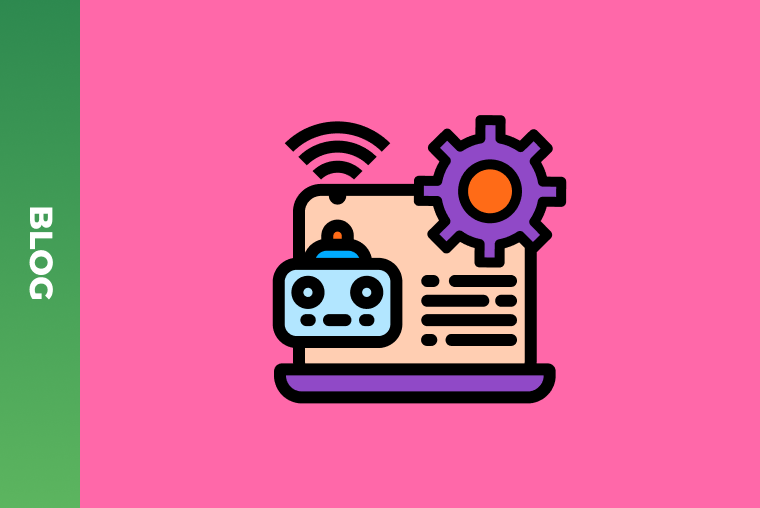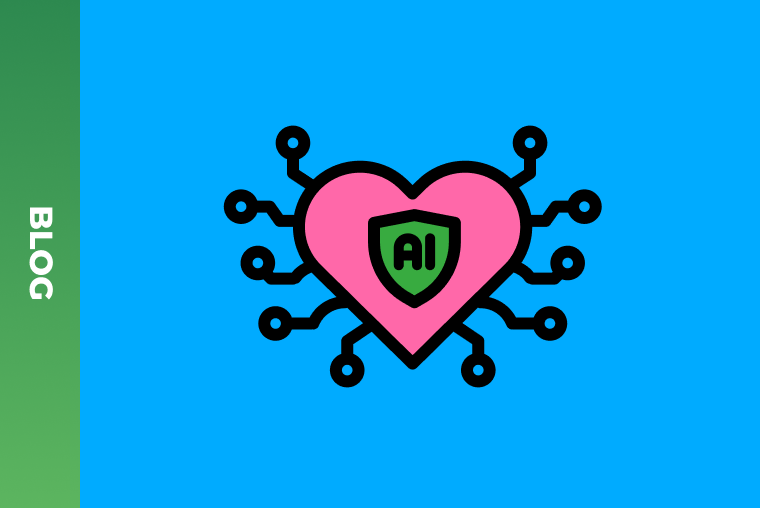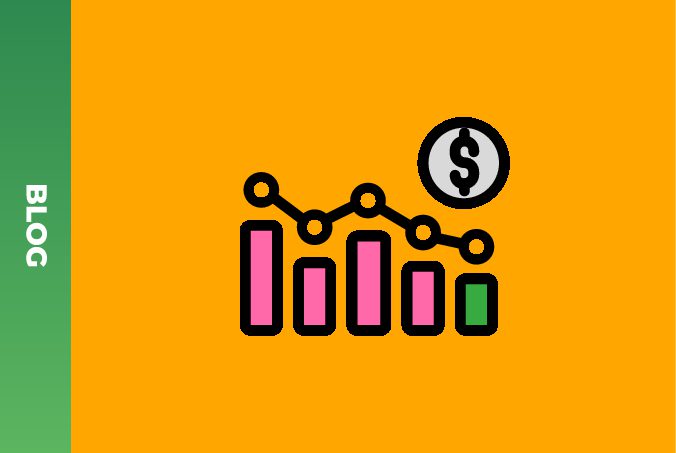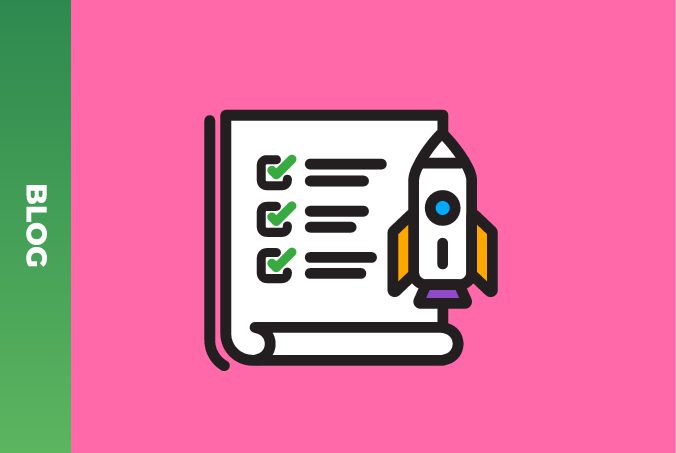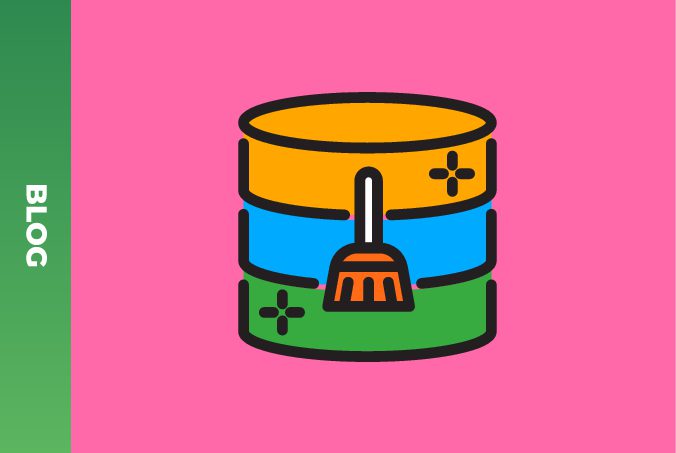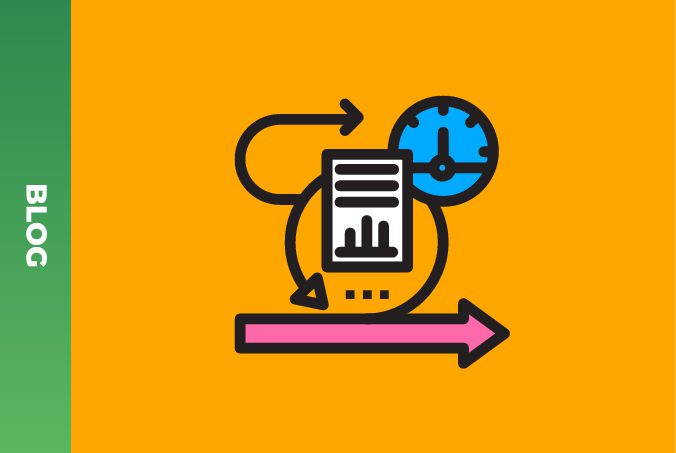The future of healthcare data science: trends and predictions
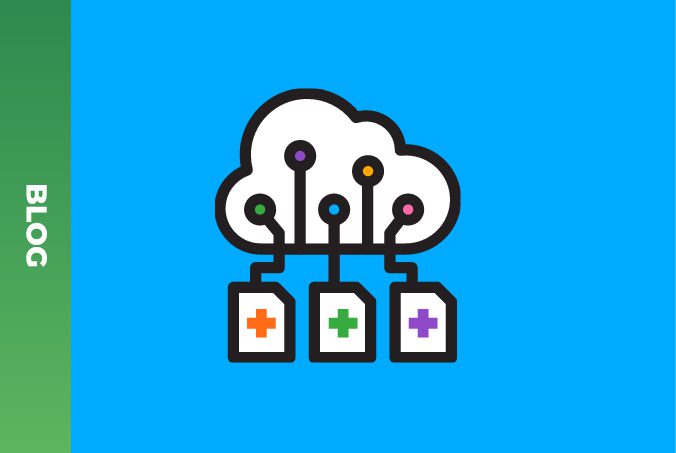
In recent years, the healthcare industry has witnessed a significant transformation with the integration of data science into its core. No way should we forget that healthcare is intended for people, not equipment, technologies, or places. To that end, data science in healthcare has not only revolutionized the way information is processed but has also paved the way for personalized and efficient patient care.
Some interesting figures: According to Statista, as of the end of 2022 there were about 50,000 mHealth applications on the Apple App Store and 54,000 – on the Google Play Store. At the same time, research by McKinsey & Company says technology-driven innovation is likely to make $350 billion–$410 billion in annual value in the healthcare industry by 2025.
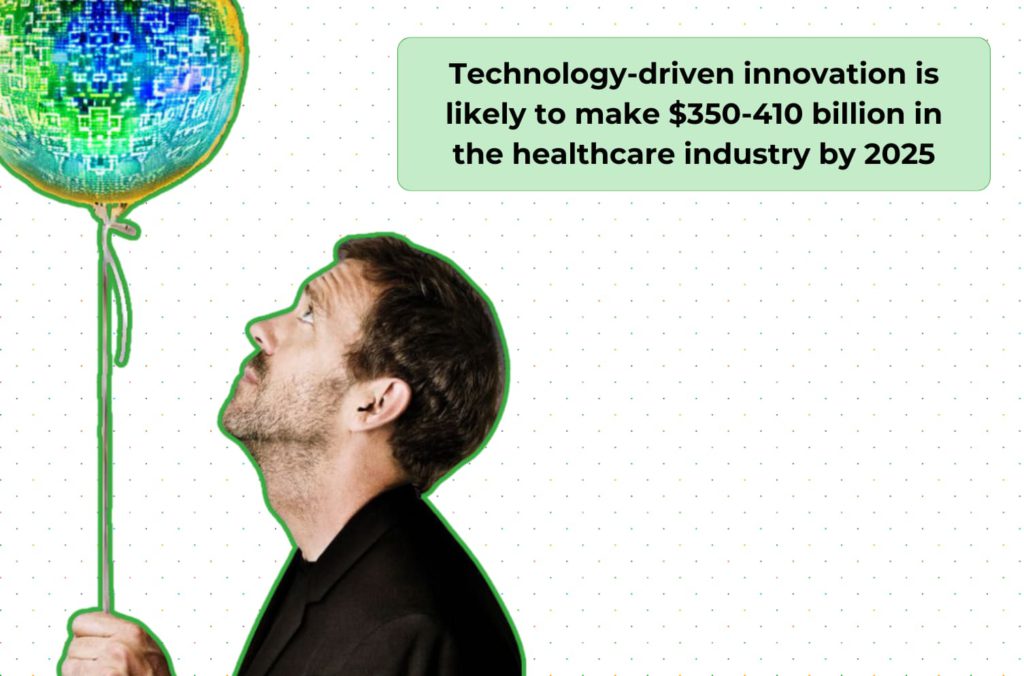
As we look ahead, healthcare data science promises even more groundbreaking advancements. From the digitization of patient records to the advent of precision medicine, data science has become a driving force in shaping the future of healthcare. This article is about what to anticipate and what is popular when it comes to healthcare data science.
What are healthcare data science trends today?
Let’s start with what data science is. It is an interdisciplinary field that utilizes data collection, cleaning, preparation, integration, visualization, big data analytics, deep learning, Natural Language Processing (NLP), and generally applies Machine Learning (ML) and Artificial Intelligence (AI) in scientific methods, processes, algorithms, and systems to extract insights and knowledge from structured and unstructured data.
In simple terms, data science is like a detective work for information in the digital age. It involves collecting, cleaning, and analyzing data to uncover patterns and insights that can help solve problems or make better decisions. Data scientists use various technologies, tools, and techniques to make sense of large amounts of information, helping businesses make informed choices based on evidence and facts. It’s all about turning raw data into meaningful knowledge.
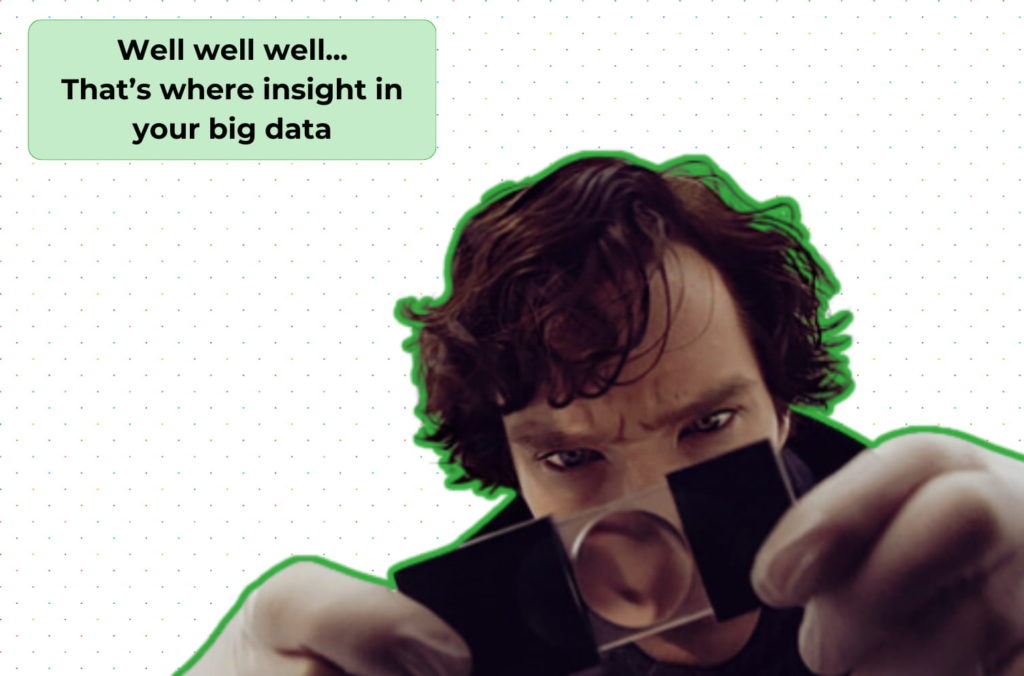
In healthcare, data science is applied to various aspects, including clinical decision-making, patient care, drug discovery, public health, etc.. After we have made clear what data science is like, it’s high time to see some data-driven trends in healthcare.
Big data & precision medicine
One of the prominent trends in healthcare data science is the utilization of big data to drive precision medicine. Big data analytics allows healthcare institutions to analyze vast datasets, including genetic information, clinical records, and lifestyle data, to tailor treatments and interventions to individual patients. This approach is a departure from the traditional one-size-fits-all model, enabling more accurate diagnoses and targeted therapies.

Precision medicine, fuelled with big data, not only considers the genetic makeup of patients but also takes into account lifestyle factors, and environmental influences. This interplay between big data and precision medicine ensures that treatments are customized to the unique characteristics of each patient, leading to improved outcomes and reduced side effects.
Healthcare data visualization
Data visualization in healthcare is another pivotal trend that is gaining traction. As the volume and complexity of healthcare data continue to grow, effective data visualization tools become essential for healthcare professionals to derive meaningful insights. Advanced visualization techniques, such as interactive dashboards and 3D imaging, empower clinicians to interpret complex data more intuitively, aiding in diagnosis, treatment planning, and communication with patients.
Visualization tools also play a crucial role in patient engagement. By presenting health information in a visually accessible format, patients can better understand their conditions, treatment options, and progress. This transparency fosters a collaborative relationship between healthcare providers and patients, ultimately contributing to better healthcare results.
Personalized healthcare through predictive analytics
The shift towards personalized healthcare is a paradigm shift that data science has catalyzed. Personalized medicine involves customizing medical decisions, practices, and recommendations to individual patients. With the integration of data science, healthcare providers can leverage patient-specific data to predict disease risks, optimize treatment plans, and prescribe medications with greater precision.
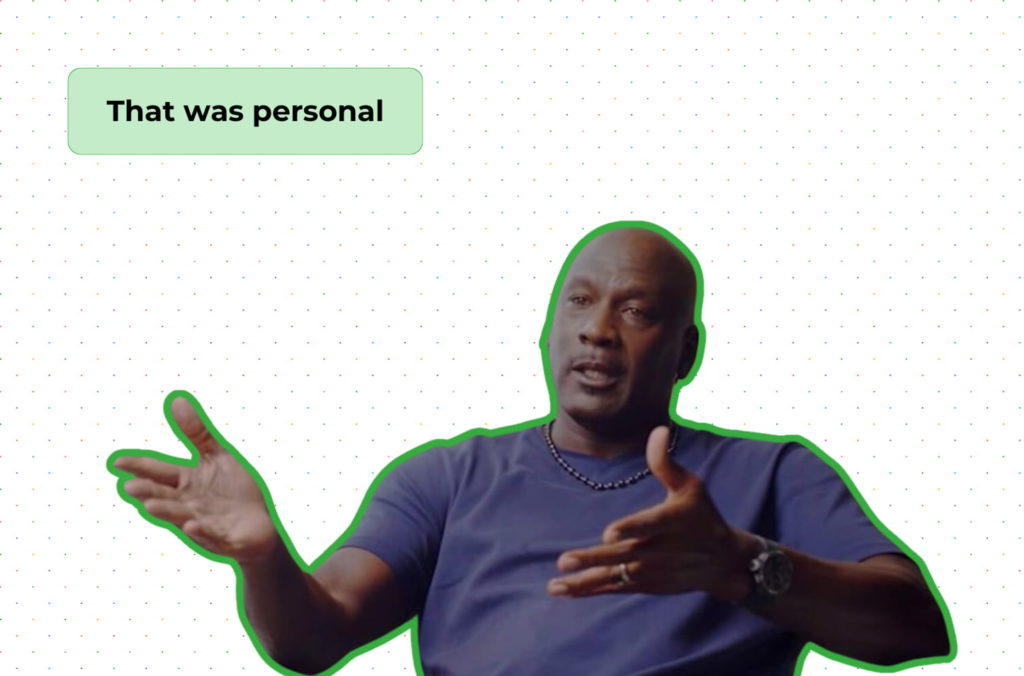
The use of predictive analytics enables early identification of potential health issues, allowing for proactive interventions. For example, by analyzing a patient’s historical health data, algorithms can identify patterns indicative of certain conditions, prompting healthcare professionals to initiate preventive measures or recommend lifestyle changes. This proactive approach not only improves patient outcomes but also contributes to the overall efficiency of healthcare systems.
Some more promising applications of data science for healthcare
AI in healthcare
Further to predictive analytics, AI takes up the baton since it excels there as well. AI is a game-changer in healthcare data science generally. AI applications, such as robotics, image recognition, or virtual health assistants, are transforming various aspects of healthcare delivery. For example, robot arms help in pharmacies by selecting, counting, packaging, or other AI-powered robot devices facilitate even inventing medications, assisting in surgeries, physical rehabilitation by adapting to patients’ movements and providing personalized and targeted therapy for improved recovery.
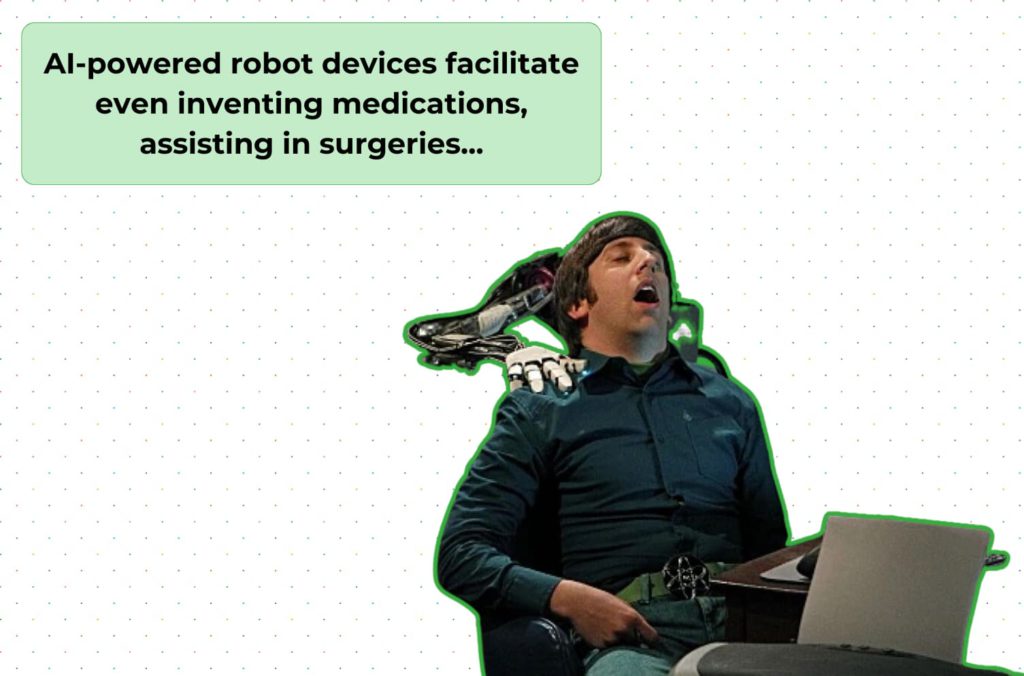
AI-driven diagnostic tools are enhancing the accuracy and speed of medical diagnoses. To sum up, AI is streamlining administrative tasks, automating routine processes, and reducing the burden on healthcare staff, allowing them to focus more on patient care.
Machine learning in healthcare
Machine learning algorithms are increasingly being employed to analyze healthcare data and extract valuable insights. These algorithms can predict disease outcomes, identify high-risk patient populations, and optimize treatment plans. Being trained on vast datasets, they can recognize patterns in medical images, aiding in the early detection of diseases such as cancer. In addition to diagnostic applications, machine learning is also contributing to the development of personalized treatment strategies by considering individual patient characteristics, treatment responses, and genetic profiles.
NLP, a subset of machine learning, is influencing how healthcare experts interact with and extract information from unstructured clinical notes, research papers, and patient records. By understanding and interpreting human language, NLP algorithms facilitate more efficient data retrieval and analysis, improving the overall decision-making process in healthcare.
We, at GreenM, believe that AI and ML will be exponentially applied everywhere, in particular in the healthcare industry.
And what about digital health innovations?
Future of telemedicine
The future of healthcare is undoubtedly intertwined with the evolution of telemedicine. Telemedicine, driven by digital health innovations, allows patients to receive medical consultations and treatment remotely, breaking down geographical barriers and improving access to healthcare services.
The continued development of telemedicine technologies is expected to enhance the virtual patient-doctor interaction. Innovations such as augmented reality (AR) and virtual reality (VR) may enable more immersive and realistic telehealth experiences. These technologies have the potential to revolutionize medical education, training, and even surgical procedures performed remotely.
Future of telehealth
Telehealth, a broader concept that encompasses telemedicine, is expanding its scope beyond virtual consultations. The future of telehealth includes remote patient monitoring, wearable devices that continuously collect and transmit health data, and smart home technologies that create a connected healthcare ecosystem.
The integration of telehealth solutions into chronic disease management is a promising avenue. Patients with chronic conditions can benefit from continuous monitoring and real-time feedback, leading to prompt relief and treatment. The combination of telehealth and data science is pointing the way for a new era of patient-centered care, where individuals actively participate in managing their health with the support of digital technologies.
Conclusion: data science matters in healthcare
The bottom line: The convergence of big data, precision medicine, AI, and digital health technologies is reshaping how healthcare is delivered, making it more personalized, efficient, and accessible. And it cannot be overstated how important data science in healthcare is. It holds the key to unlocking valuable insights from the vast amounts of healthcare data generated daily. By harnessing the power of data, healthcare professionals can make informed decisions, predict and prevent diseases, and provide individualized care that takes into account the unique characteristics of each patient.
As we navigate the future of healthcare data science, it is crucial to prioritize ethical considerations, data security, data governance, and patient privacy. Balancing technological advancements with ethical practices ensures that data science continues to be a force for positive change in the healthcare industry.
In the coming years, we can expect even more exciting developments as data science continues to push the boundaries of what is possible in healthcare. By staying at the forefront of these trends and embracing the potential of data science, the healthcare industry is poised to deliver better outcomes for patients worldwide. The future of healthcare is data-driven, and the possibilities are limitless. If you have no idea how to implement this all into your business, just contact us and we will be glad to answer any of your questions. See you soon!

